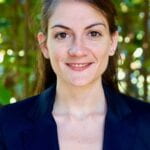Applied Micro Mini Day #1
Date: October 2nd, 2023
Address:
NYU Stern School of Business
44 West 4th Street
Room KMC 4-90
New York, NY 10012
Speakers:
 1. Chris Neilson (Yale University)
1. Chris Neilson (Yale University)
“Student Choices and the Return to College Major and Selectivity”
Abstract: This paper studies how the choice of college and major are related to life cycle earnings in a context where selection bias can potentially confound direct measurement. Three decades of ranked college applications and assignment data for the population of college students in Chile are linked to a decade of administrative tax data on earnings which allow for the study of student choices, college and major affect earnings. Application behavior, OLS earnings regressions and thousands of different RD earnings estimates are tied together using a parsimonious model of college major choice and earnings determination. After considering for the presence of selection bias, results stemming from the analysis suggest that there is considerable heterogeneity that is predictable across options. This heterogeneity can be explained by a combination of course content and observable comparative advantage given by interactions of major characteristics and student skills.
 2. Margaux Luflade (University of Pennsylvania)
2. Margaux Luflade (University of Pennsylvania)
“On the Spatial Determinants of Educational Opportunities” (joint with F. Agostinelli and P. Martellini)
Abstract: This paper investigates the role of school assignment to neighborhoods and the provision of school transportation on the disparities in educational access across children. We build and estimate a spatial equilibrium model of residential sorting and school choice, which replicates cross-sectional moments of a large school district and the response of neighborhood and school choice to quasi-experimental variation in peer school composition and school bus transportation. We find that removing transportation is equivalent to extending commuting distance by two and half times. Disutility over commuting distance is similar across families, while the skill composition of school peers is valued disproportionately more by higher income families. We use the estimated model to assess the welfare implications of a policy that includes high achieving schools in the choice set of disadvantaged neighborhoods. We find negative welfare effects in the aggregate, and only small gains for economically disadvantaged families. The majority of the gain from access to better peers is offset by higher house prices and longer commutes. Incumbent families respond by relocating to different neighborhoods and increasing attendance at private schools, particularly as the policy is implemented on a larger scale. Notably, the high income households at the outskirts of the city are unaffected by the policy, given the role of distance as a natural barrier to school segregation.
 3. Matt Wiswall (University of Wisconsin–Madison)
3. Matt Wiswall (University of Wisconsin–Madison)
“Early Childhood Care and Cognitive Development” (joint with Juan Chaparro and
Aaron Sojourner)
Abstract: This paper combines multiple sources of information on early childhood development in a unified model for analysis of a wide range of early childhood policy interventions. We develop a model of child care in which households decide both the quantities and qualities of maternal and non-maternal care along with maternal labor supply. The model introduces a novel parenting-effort
channel, whereby child care subsidies that permit less parenting may enable better parenting. To
estimate the model, we combine observational data with experimental data from the Infant Health
and Development Program (IHDP) which randomly assigned free child care when the child was 1
and 2 years old. We estimate a cognitive skill production function and household preferences,
giving insight into mechanisms driving the ex post heterogeneous effects of the IHDP
intervention, accounting for alternative care substitutes available to the control group and
spillovers of the child care offer across the household’s decisions. We also estimate ex ante
effects of counterfactual policies such as an offer of lower-quality care, requiring a co-pay for
subsidized care, raising the maternal wage offer, or a cash transfer. Finally, we use the model to
rationalize existing evidence from outside the US on the effects of universal child care programs.
The schedule is:
12:00 PM – 1:10 PM Lunch
1:15 PM – 2:15 PM: Chris Neilson
2:15 PM – 2:45 PM Coffee Break – 30 minutes
2:45 PM – 3:45 PM Matt Wiswall
3:45 PM – 4:00 PM Stretch Break – 15 minutes
4:00 PM – 5:00 PM: Margaux Luflaude
